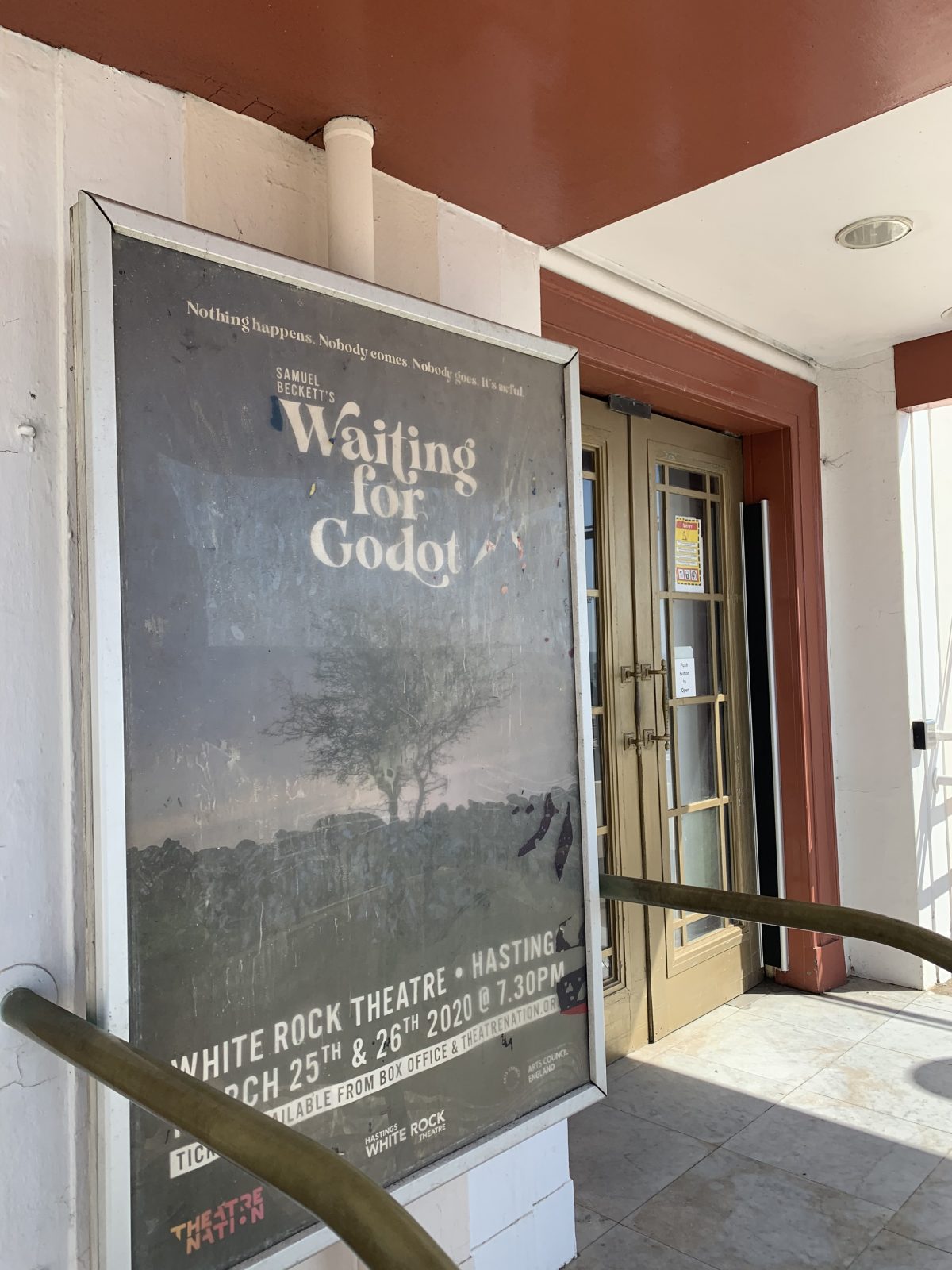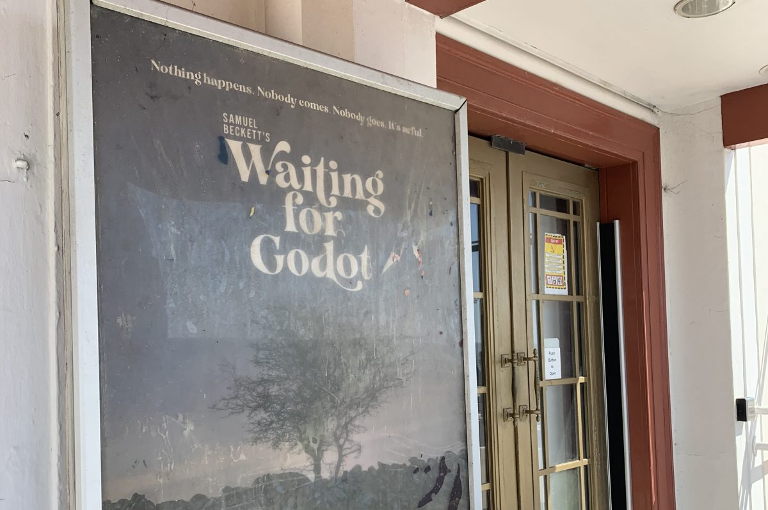When children in the UK return to school, the recommendations on social distancing will mean that a radical rethink of the education model is needed. Theatre director Kate Golledge believes that the UK’s cultural institutions can play a vital role in a vibrant, post-lockdown education system.
(Originally published by Transition Liverpool)
When our schools reopen, it looks as though students will be split into small ‘bubbles’ , allocated to a specific staff member, in order to facilitate social distancing. The bubbles will attend school part-time, and learn from home part-time. JoinedUp is a scheme proposing to re-open our unused cultural institutions for the use of these ‘bubbles’ during the periods they aren’t at school, and create local programmes to alleviate the pressure on teachers, parents and the economy.
At some point around the beginning of March, I took up jogging. I’ve always had a love/hate relationship with it, but there’s nothing like being told you are only allowed outside for exercise to create an instant burning need to get on with doing that thing you never thought possible before.
Every day I jog past my local theatre. It’s a sad sight. The doors are chained, the windows are blocked by large production photo boards so you can’t see inside. It feels imposing, unwelcoming, sad. On one of my daily outings I noticed the poster standing between the main doors and the irony of the caption wasn’t lost on me.

It’s been increasingly clear over the last two months that the situation facing theatre and the live arts in the UK is desperate. Sonia Friedman wrote an article, subsequently reprinted in the Telegraph, asserting that British Theatre is on the brink of total collapse. We’ve already seen Southampton’s Nuffield Theatre go into administration, and the (hopefully) temporary closure of the Lyceum in Edinburgh. So many of these beautiful buildings that sit at the centre of our communities are in very real danger of never reopening their doors.
Alongside this, it seems that the government are tiring of supporting a self-employed workforce currently unable to work because their place of work is closed. Last week Chancellor of the Exchequer Rishi Sunak replied to questions from the public on Twitter, including one from writer and theatre maker Vikki Stone:
There are thousands of self-employed freelancers from a huge variety of backgrounds working in theatre, which as a sector has no hope of reopening in June. Are you going to extend the SEISS to October in line with the furlough scheme? #AskRishi — Vikki Stone (@vikkistone) May 21, 2020
We are all facing some stark realities. The first, that it will be some time before theatres, museums, galleries and other cultural institutions are able to reopen their doors and serve their communities, and on a personal level, a bleak financial future with no income forthcoming.
But on one bright, sunny optimistic morning jog I started to wonder if there wasn’t another way to address some of the challenges we are all currently facing, repurposing these spaces for now and inventing a new arts-led infrastructure that is able to serve the needs of the community in an even more specific way, bringing together the arts and education sectors and using the problems of one to be the solutions of the other.
Imagine if your art classroom was the main room of the National Gallery. If you and your peers could spend a day working on an art project in one of the most iconic and famous buildings in the capital. Or perhaps song writing in The Cavern Club in Liverpool, birthplace of the Beatles. Horticulture in the Eden Project. Cooking and nutrition in Pizza Express.
There seems to be an agreement that getting at least some pupils back to school this side of the summer holidays is a priority. However, we hear on the news that it will be hard – impossible, even – to maintain social distancing with class sizes as they are in many state maintained schools.
As a parent myself, I fear for the psychological effects that this lockdown period may have had on our children. A long period of no contact with their peers or wider family and an increase in screen time are just two of the huge changes that our young people have had to deal with over the last few months. It seems prudent to imagine that we will all need to take a responsibility for helping our young people readjust to life in a learning setting, and that this could be complicated or made even more difficult with new restrictions put in place to ensure safe social distancing.
What if there was a way to bring down class sizes, provide inspirational role-modelled learning and allow our young people to take over their local cultural institutions, making a return to education something exciting, fresh and different?
I wonder about the possibility of reopening our currently closed cultural and civic spaces, for the use of school pupils. What if we created a massive programme of work experience that allows cultural and civic buildings to play a role in the education of young people in their area? What if our young people’s enrichment was much more than a once-yearly school trip?
Imagine if a class of 30 students could be split in half, and half taken out of school to their local theatre. Some may have attended performances there as audience members. Some may never have been inside. Upon arrival they are met by a local theatre professional who will spend the day working with the group on any one of a myriad of different subjects; song writing, playwriting, stage lighting, choir, dance performance, costume, set design, sound design – the possibilities are endless.
And it doesn’t have to stop at theatre; in an empty shop, local entrepreneurs could help students to create and set up their own businesses. They could learn about budgeting, marketing, building a brand, engaging with customers.
In a local library, authors can lead storytelling and writing sessions, providing a space where students can write among hundreds of books for inspiration.
In hotels and restaurants, students could learn cooking skills in professional kitchens. They could explore questions about the supply chain in large scale catering. Farms, football stadiums, health centres – there are so many places, currently standing empty, which we could utilise to solve the problem of social distancing for school pupils.
It’s not only the buildings that are currently underutilised. What of the skilled and experienced workforce, currently furloughed or even unemployed? A reimagining of the education system would also support those who are currently unable to return to their sectors in their traditional capacity, providing high quality and expert knowledge as well as wonderful local role models in sectors that the students may not know anything about.
With support and planning, the size of these spaces could ensure that this was all put together in a safe, socially distanced way. Many of the leaders wouldn’t have to be near the school group at all, if educational ‘bubbles’ are being established with a consistent line up of students and a member of staff. It’s early days for this level of detail and there will be many, many things yet to be thought of, but in the theatre, we deal in detail and we don’t stop until we’re done.
Arts people are wonderful beings. They are masters at bringing people together, at creating safe and sympathetic spaces for emotion to be explored, and at adapting within every new group they find themselves. They are creative, resourceful, adaptable, collaborative and full of initiative. They are people-people.
The Arts has always been a place of safety and solace, a place where we can explore our jumbled minds and allow the images and stories that we are told to help us frame our own experiences.
Aligning Arts and Education at this crucial moment in our history seems like the perfect solution to problems from many different sectors.
- It creates spaces for students to explore subjects that might usually be extra curricular.
- It allows those self-employed to support the work that our education professionals can do in the classroom and earn money for their time.
- It allows for ownership of cultural and civic buildings, fostering the notion that they are places that the students belong, supporting the idea that ‘Every Child is an Artist.’
- Most importantly it creates safe and creative spaces for students to debrief the experiences they have had over the last few months, using arts as an outlet for their feelings.
On the 19th May, I posted this idea, in a very rambling and early-days way, on Twitter. The reaction was astonishing. I was so pleased to see such an appetite for radical ideas, and have started conversations locally to see whether we can create a blueprint. I’ve also been overwhelmed with offers of support and expertise to get it off the ground and I’m working my way through them with huge gratitude.
I’ve been chatting with others across the UK to see whether it’s something they could benefit from in their areas, and working out the hows and wherefores. It feels like a thing that we might just have to get on with, rather than waiting for a centrally co-ordinated approach, so I thought it was worth sharing in case this document or any of the detail we discover along the way is useful to others. I’ll keep it updated with relevant information.
I know there are challenges. I’m not from the education sector – I can’t even begin to answer questions about how we address safeguarding, health and safety, how we’d cater for those who receive free school meals. I know that geography is a challenge and that those who live in towns and cities have easier access to these buildings than others.
I have learnt this week that a crucial element in restarting education is for the students to rebuild relationships with their teachers. Alongside massive support for the idea, I’ve been interested to read the replies giving all the reasons why it couldn’t work. But the problem with telling theatre makers that it can’t be done is that it lights the fire in our souls determined to do the opposite.
Just like being told you can only go outside for your exercise, I suppose.





